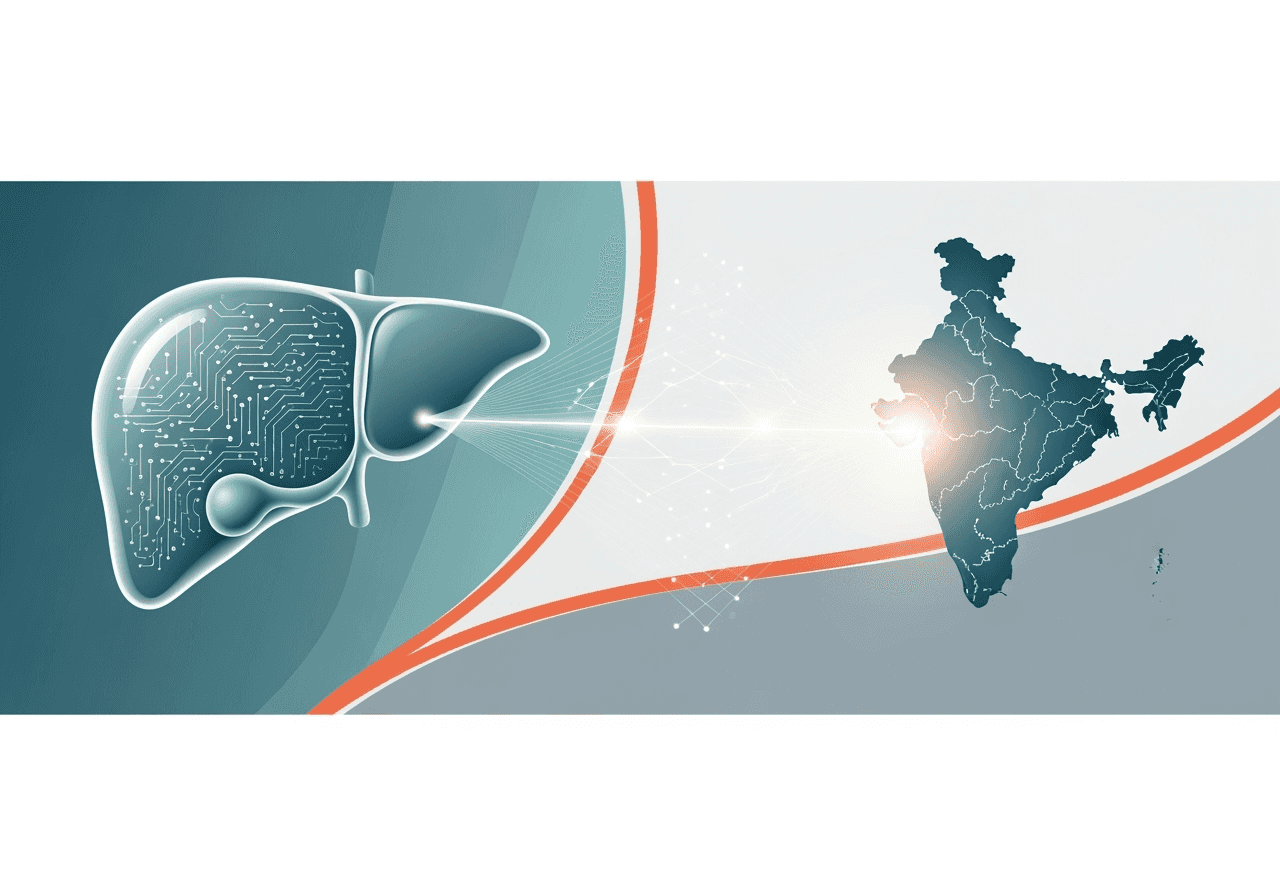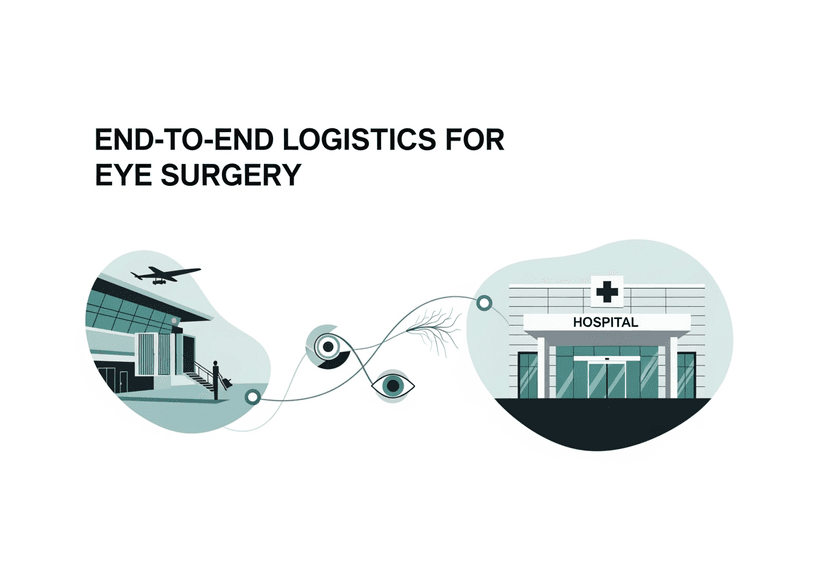
Latest Techniques Used for Liver Transplant in India via Healthtrip
15 Oct, 2025
 Healthtrip
Healthtrip- Why Liver Transplant is Necessary in India: Understanding the Need
- Cutting-Edge Liver Transplant Techniques Offered in India
- Living Donor Liver Transplant: A Closer Look
- Robotic-Assisted Liver Transplant: Precision and Minimally Invasive Approach at Fortis Memorial Research Institute, Gurgaon
- Leading Liver Transplant Centers in India: Fortis Escorts Heart Institute and Max Healthcare Saket
- Cost Considerations for Liver Transplant in India Through Healthtrip
- Post-Transplant Care and Recovery in India
- Conclusion: The Future of Liver Transplants in India
Minimally Invasive Liver Transplant Techniques
Minimally invasive liver transplant techniques represent a significant leap forward in surgical procedures, reducing trauma to the patient and accelerating recovery times. Laparoscopic and robotic-assisted approaches involve smaller incisions, leading to less pain, reduced scarring, and a lower risk of complications compared to traditional open surgery. During these procedures, surgeons utilize specialized instruments and high-definition cameras to visualize and operate on the liver with precision. This translates to shorter hospital stays and a quicker return to normal activities, which is incredibly important for patients eager to resume their lives after transplant. Healthtrip understands the importance of these advanced techniques and works with hospitals like Fortis Hospital, Noida and doctors who are proficient in minimally invasive procedures, ensuring patients receive the best possible care with the least amount of disruption to their lives. Choosing a minimally invasive approach can significantly improve a patient's overall transplant experience, positively impacting their physical and emotional well-being.
Most popular procedures in India
Living Donor Liver Transplant
Living donor liver transplant (LDLT) is a remarkable option where a portion of a healthy person's liver is transplanted into a recipient, offering a lifeline to those awaiting a deceased donor organ. This procedure requires meticulous planning and execution, ensuring the safety and well-being of both the donor and the recipient. The donor's liver regenerates to its full size within a few weeks, while the transplanted segment grows and functions normally in the recipient. LDLT significantly reduces waiting times, which can be critical for patients with rapidly progressing liver disease. Healthtrip facilitates access to leading transplant centers in India, such as Max Healthcare Saket, where highly skilled surgeons perform LDLT with exceptional success rates. The emotional connection between the donor and recipient can be incredibly powerful, adding a unique dimension to the transplant journey. Healthtrip provides comprehensive support to both donors and recipients, guiding them through the evaluation process, surgery, and post-operative care, making this life-saving option a viable and hopeful path forward. You can also consult with doctors on Healthtrip’s platform on if you are eligible for LDLT.
Robotic Liver Surgery
Robotic liver surgery is at the forefront of surgical innovation, offering unparalleled precision, dexterity, and control to surgeons performing complex liver resections and transplants. Using advanced robotic systems, surgeons can navigate intricate anatomical structures with enhanced vision and maneuverability, leading to improved outcomes and reduced complications. The da Vinci Surgical System, for example, allows surgeons to perform delicate procedures through tiny incisions, minimizing blood loss, pain, and scarring. This technology is especially beneficial in cases where tumors are located in difficult-to-reach areas of the liver. Healthtrip collaborates with hospitals like Fortis Memorial Research Institute, Gurgaon that have invested in robotic surgery capabilities, ensuring patients have access to the most advanced treatment options available. Robotic surgery not only improves surgical precision but also shortens recovery times, allowing patients to return to their normal lives sooner. Healthtrip aims to provide patients with all the information they need to make informed decisions about their treatment, ensuring a smooth and successful transplant journey.
Wellness Treatments
Give yourself the time to relax
Lowest Prices Guaranteed!

Lowest Prices Guaranteed!
Innovations in Immunosuppression
Immunosuppression is a critical aspect of liver transplantation, preventing the recipient's immune system from rejecting the new organ. Recent innovations in immunosuppressive medications have significantly improved the long-term success rates of liver transplants, reducing the risk of rejection and minimizing side effects. Newer drugs are more targeted and have fewer toxic effects compared to traditional immunosuppressants, leading to better patient outcomes and improved quality of life. Personalized immunosuppression strategies, tailored to each patient's individual needs and risk factors, are becoming increasingly common. Healthtrip understands the importance of these advancements and connects patients with transplant centers that are at the forefront of immunosuppression research and clinical practice, like Fortis Shalimar Bagh. Regular monitoring and close collaboration between transplant physicians and patients are essential to optimize immunosuppression and prevent complications. Healthtrip provides ongoing support and guidance to patients, helping them manage their medications and maintain their health after transplant, ensuring a long and healthy life with their new liver.
Why Liver Transplant is Necessary in India: Understanding the Need
The liver, a silent workhorse in our bodies, often goes unnoticed until something goes wrong. It's responsible for a staggering array of functions, from filtering toxins and processing nutrients to producing essential proteins and aiding in blood clotting. When the liver starts to fail, the consequences can be devastating, leading to a cascade of health problems that significantly impact quality of life. In India, the need for liver transplants is particularly acute, driven by a complex interplay of factors including prevalent liver diseases, lifestyle choices, and limited access to timely and effective treatment. Understanding the reasons behind this growing demand is crucial for both patients and healthcare providers, paving the way for better prevention, diagnosis, and treatment strategies. Healthtrip recognizes the urgency and offers comprehensive assistance to patients seeking liver transplant solutions in India, connecting them with leading specialists and facilities to navigate this challenging journey.
Chronic liver diseases, such as hepatitis B and C, non-alcoholic fatty liver disease (NAFLD), and alcohol-related liver disease, are major contributors to liver failure in India. Hepatitis B, often contracted during childhood, silently damages the liver over decades, eventually leading to cirrhosis and liver cancer. Similarly, hepatitis C, transmitted through blood and bodily fluids, can cause chronic inflammation and scarring. NAFLD, fuelled by rising rates of obesity and diabetes, is rapidly becoming a leading cause of liver disease, mirroring global trends. Alcohol-related liver disease continues to take a significant toll, particularly in certain regions. These conditions often progress insidiously, with few noticeable symptoms in the early stages, making early detection and intervention critical. Healthtrip advocates for proactive health screenings and connects patients with expert diagnosticians for timely identification of potential liver problems, ensuring they receive the right care at the right time.
When liver diseases progress to end-stage liver failure, a liver transplant is often the only life-saving option. This involves replacing the diseased liver with a healthy liver from a deceased or living donor. The transplant can dramatically improve the patient's quality of life, restoring liver function and preventing further complications. However, the demand for liver transplants far exceeds the supply of available organs, creating a significant backlog of patients awaiting this critical procedure. This shortage highlights the importance of increasing organ donation awareness and streamlining the organ donation process. Healthtrip plays a vital role in facilitating access to liver transplant services, guiding patients through the complexities of finding suitable donors, coordinating medical evaluations, and arranging treatment at reputable transplant centers.
Cutting-Edge Liver Transplant Techniques Offered in India
India has emerged as a global hub for liver transplantation, not only because of its cost-effectiveness but also thanks to the advanced techniques and expertise available at its leading medical centers. The field of liver transplantation has evolved significantly over the years, with surgeons continually refining their methods to improve patient outcomes and minimize complications. These advancements encompass everything from sophisticated pre-operative assessments to innovative surgical approaches and state-of-the-art post-operative care. For patients considering liver transplantation, understanding these cutting-edge techniques can provide greater confidence and clarity about the procedure and its potential benefits. Healthtrip collaborates with hospitals that are at the forefront of these innovations, ensuring that patients have access to the best possible care and technology.
One of the most significant advancements in liver transplantation is the refinement of surgical techniques. Minimally invasive approaches, such as laparoscopic and robotic-assisted surgery, are increasingly being used to remove the diseased liver and implant the new one. These techniques involve smaller incisions, resulting in less pain, reduced blood loss, and shorter hospital stays. Complex procedures like split liver transplantation (dividing a deceased donor liver into two for separate recipients) and domino liver transplantation (transplanting a liver from a patient with a metabolic disorder into another patient with a different liver condition) are also performed in specialized centers. These advanced surgical strategies demonstrate India's commitment to pushing the boundaries of liver transplantation. Healthtrip facilitates access to these advanced surgical options, connecting patients with experienced transplant surgeons who are skilled in performing these procedures.
The use of advanced imaging technologies, such as high-resolution CT scans and MRI, plays a crucial role in pre-operative planning. These images provide detailed information about the liver's anatomy, blood vessels, and any existing abnormalities, helping surgeons to plan the operation with greater precision. During the transplant procedure, intraoperative ultrasound and other real-time imaging techniques can be used to guide the surgeon and ensure accurate placement of the new liver. Post-transplant monitoring also relies heavily on advanced imaging to detect any complications, such as blood clots or rejection. Healthtrip emphasizes the importance of comprehensive pre- and post-operative care, ensuring that patients receive the necessary imaging and monitoring throughout their transplant journey. Fortis Hospital, Noida and Max Healthcare Saket are known for some of the best facilities.
Immunosuppression management, essential for preventing organ rejection after transplantation, has also become more sophisticated. Newer immunosuppressant drugs with fewer side effects are now available, allowing doctors to tailor the treatment to each patient's individual needs. Advanced monitoring techniques, such as measuring the levels of immunosuppressant drugs in the blood, help to optimize the dosage and minimize the risk of rejection or toxicity. Healthtrip works with transplant centers that have expertise in immunosuppression management, ensuring that patients receive personalized treatment plans that maximize the chances of long-term success.
Living Donor Liver Transplant: A Closer Look
While deceased donor liver transplantation remains the gold standard, the severe shortage of organs has made living donor liver transplantation (LDLT) an increasingly important option, especially in India. LDLT involves removing a portion of the liver from a healthy living donor and transplanting it into a recipient whose liver is failing. The liver has an amazing ability to regenerate, both in the donor and the recipient, allowing both individuals to recover fully. LDLT offers several advantages over deceased donor transplantation, including shorter waiting times, improved patient outcomes, and the ability to plan the surgery in advance. However, it also involves risks for the donor, making careful evaluation and selection of donors essential. Healthtrip provides comprehensive information and support to patients and their families considering LDLT, helping them to make informed decisions and navigate the complex process.
The success of LDLT depends on several factors, including the health of the donor, the compatibility between the donor and recipient, and the expertise of the surgical team. Potential donors undergo a thorough medical and psychological evaluation to ensure that they are healthy enough to undergo the surgery and that they understand the risks involved. The donor's blood type and tissue type must be compatible with the recipient's to minimize the risk of rejection. The surgery itself is a complex procedure that requires a highly skilled surgical team. In India, several centers have developed extensive experience in LDLT, achieving excellent outcomes comparable to those of leading centers worldwide. Healthtrip works with these centers, ensuring that patients have access to experienced surgeons and state-of-the-art facilities.
One of the key challenges in LDLT is minimizing the risks to the donor. Potential risks include bleeding, infection, and complications related to the surgery. To minimize these risks, surgeons use minimally invasive techniques whenever possible and carefully monitor the donor's health throughout the recovery period. The donor's liver will regenerate over time, typically returning to its original size within a few months. The recipient also faces risks, including rejection, infection, and complications related to immunosuppression. Careful monitoring and management are essential to minimize these risks and ensure a successful outcome. Fortis Memorial Research Institute, Gurgaon, is one of the best hospitals for living donor liver transplant. Healthtrip provides comprehensive post-transplant care support, connecting patients with resources and specialists who can help them manage their health and prevent complications.
Ethical considerations are paramount in LDLT. It is crucial to ensure that the donor is acting voluntarily and is not being coerced or financially compensated for their donation. Independent donor advocates play a vital role in ensuring that the donor's rights are protected and that they fully understand the risks and benefits of the procedure. Healthtrip emphasizes ethical practices and works with transplant centers that adhere to the highest ethical standards.
Also Read:
Robotic-Assisted Liver Transplant: Precision and Minimally Invasive Approach at Fortis Memorial Research Institute, Gurgaon
Robotic-assisted liver transplant represents a significant leap forward in surgical techniques, offering patients a minimally invasive alternative to traditional open surgery. At Fortis Memorial Research Institute, Gurgaon, this cutting-edge technology is harnessed to enhance precision, reduce recovery times, and minimize scarring. Imagine a surgeon operating with the dexterity of a robot, guided by advanced imaging and robotic arms that allow for intricate maneuvers within the abdomen. This translates to smaller incisions, less blood loss, and a reduced risk of complications. The da Vinci Surgical System, often employed in these procedures, provides surgeons with a magnified 3D view of the operating area, enabling them to navigate the complex network of blood vessels and tissues with unparalleled accuracy. For patients, this can mean a quicker return to their normal lives, with less post-operative pain and a lower risk of infection. Fortis Memorial Research Institute, Gurgaon (https://www.healthtrip.com/hospital/fortis-memorial-research-institute) is dedicated to providing comprehensive liver transplant care and committed to pushing the boundaries of medical innovation for better patient outcomes. Robotic surgery is really transforming the field and we at Healthtrip are here to help make sure you are informed about every aspect of it!
The benefits of robotic-assisted liver transplant extend beyond the immediate surgical period. Patients often experience shorter hospital stays compared to those undergoing traditional open surgery. The reduced trauma to the body also contributes to faster healing and a quicker return to normal activities. Moreover, the enhanced precision of the robotic system can lead to improved long-term outcomes. For example, it can help to minimize the risk of bile duct complications, which are a common concern after liver transplantation. The smaller incisions also translate to less visible scarring, which can be a significant consideration for some patients. The availability of such advanced technology at Fortis Memorial Research Institute, Gurgaon, underscores India's growing reputation as a hub for medical tourism, attracting patients from around the world seeking the best possible care. Through Healthtrip, patients can easily access information about robotic-assisted liver transplant and connect with experienced surgeons at leading hospitals like Fortis Memorial Research Institute, Gurgaon.
Also Read:
Leading Liver Transplant Centers in India: Fortis Escorts Heart Institute and Max Healthcare Saket
When it comes to liver transplants, choosing the right medical center can make all the difference. India boasts some world-class facilities renowned for their expertise and success rates in liver transplantation. Among these, Fortis Escorts Heart Institute and Max Healthcare Saket stand out as leading centers of excellence. Fortis Escorts Heart Institute (https://www.healthtrip.com/hospital/fortis-escorts-heart-institute), with its state-of-the-art infrastructure and a team of highly skilled surgeons, offers a comprehensive range of liver transplant services. Their multidisciplinary approach ensures that each patient receives personalized care tailored to their specific needs. Similarly, Max Healthcare Saket (https://www.healthtrip.com/hospital/max-healthcare-saket) is known for its commitment to innovation and patient-centric care. The hospital's liver transplant program is staffed by experienced hepatologists, surgeons, and support staff who work together to provide the best possible outcomes. Choosing the right hospital is a big decision, and Healthtrip is here to make the process as smooth as possible for you. We are ready to help you navigate and access the best medical centers in India.
Both Fortis Escorts Heart Institute and Max Healthcare Saket have a proven track record of performing successful liver transplants, including complex cases. They are equipped with advanced diagnostic and surgical technologies, ensuring that patients receive the most up-to-date and effective treatments. Furthermore, these centers prioritize patient education and support, providing comprehensive information about the transplant process, potential risks and benefits, and post-transplant care. This empowers patients to make informed decisions and actively participate in their own healthcare. The commitment to excellence at these institutions extends beyond the operating room, with a focus on long-term follow-up and rehabilitation to ensure the best possible quality of life for transplant recipients. Through Healthtrip, patients can access detailed information about these leading liver transplant centers in India, compare their services and expertise, and connect with the medical teams to discuss their individual needs.
Also Read:
Cost Considerations for Liver Transplant in India Through Healthtrip
Cost is a significant consideration for anyone contemplating a liver transplant. In India, the cost of a liver transplant can vary widely depending on several factors, including the hospital chosen, the complexity of the case, and the type of transplant (living donor or deceased donor). However, compared to many Western countries, India offers a more affordable option for liver transplantation without compromising on quality of care. Healthtrip plays a crucial role in helping patients understand and navigate the cost considerations associated with liver transplant in India. We provide transparent information about the estimated costs at different hospitals, including pre-transplant evaluations, surgery, hospital stay, and post-transplant medications. This allows patients to make informed decisions and plan their finances accordingly. Healthtrip also assists patients in exploring various financing options, such as medical loans and crowdfunding, to help them manage the expenses associated with liver transplantation.
The cost of a liver transplant in India typically includes the surgeon's fees, the cost of the donor liver (in the case of deceased donor transplants), hospital charges, anesthesia fees, and the cost of immunosuppressant medications. It's important to note that the cost can vary significantly depending on the hospital's reputation, the expertise of the surgical team, and the level of technology available. For example, hospitals like Fortis Escorts Heart Institute and Max Healthcare Saket, known for their advanced facilities and experienced surgeons, may have different pricing structures compared to smaller hospitals. Healthtrip works with a network of accredited hospitals in India to offer patients a range of options to suit their budget and medical needs. We also provide personalized cost estimates based on individual patient profiles, ensuring that patients have a clear understanding of the potential expenses involved.
Also Read:
Post-Transplant Care and Recovery in India
Post-transplant care is a critical component of a successful liver transplant. In India, patients receive comprehensive post-transplant care to ensure optimal recovery and long-term health. This includes regular monitoring of liver function, management of immunosuppressant medications, and lifestyle counseling. The goal of post-transplant care is to prevent rejection of the new liver, manage any potential complications, and help patients return to a normal, healthy life. Indian hospitals offering liver transplants typically have dedicated transplant teams that provide ongoing support and guidance to patients and their families. This includes education on medication adherence, diet and exercise recommendations, and strategies for managing stress and anxiety. Healthtrip recognizes the importance of post-transplant care and provides resources to help patients navigate this crucial phase of their journey. We connect patients with experienced transplant specialists and support groups, ensuring they have access to the information and support they need to thrive after transplant.
The recovery process after a liver transplant can vary from person to person, but typically involves a period of hospitalization followed by outpatient care. During the initial weeks after surgery, patients will need to attend regular follow-up appointments to monitor their liver function and adjust their medications as needed. Immunosuppressant medications are essential to prevent the body from rejecting the new liver, but they can also increase the risk of infection. Therefore, patients need to be vigilant about hygiene and follow their doctor's instructions carefully. In addition to medical care, emotional and psychological support are also important during the recovery process. Patients may experience anxiety, depression, or other emotional challenges as they adjust to their new life after transplant. Support groups and counseling can provide a valuable outlet for sharing experiences and coping with these challenges. Healthtrip is committed to providing holistic support to transplant patients, addressing not only their medical needs but also their emotional and psychological well-being.
Conclusion: The Future of Liver Transplants in India
The future of liver transplants in India looks promising, with advancements in surgical techniques, improved immunosuppression protocols, and increasing access to care. India has emerged as a leading destination for liver transplantation, attracting patients from around the world seeking high-quality, affordable treatment. The country boasts a growing number of centers of excellence, like Fortis Escorts Heart Institute and Max Healthcare Saket, equipped with state-of-the-art technology and staffed by experienced transplant teams. As the awareness of liver diseases and the availability of transplant options increases, more patients in India and abroad will benefit from this life-saving procedure. Healthtrip is committed to playing a vital role in shaping the future of liver transplantation in India. We will continue to provide patients with access to comprehensive information, personalized support, and affordable treatment options. By connecting patients with the best medical professionals and facilities, Healthtrip aims to improve outcomes and enhance the quality of life for liver transplant recipients.
With ongoing research and development in the field of transplantation, we can expect to see further improvements in surgical techniques, immunosuppressant medications, and post-transplant care. Minimally invasive approaches, such as robotic-assisted liver transplant, are becoming increasingly common, offering patients reduced recovery times and improved cosmetic outcomes. Furthermore, advancements in immunosuppression are helping to minimize the risk of rejection and improve long-term graft survival. As India continues to invest in its healthcare infrastructure and train skilled transplant professionals, the country is poised to become an even more prominent global hub for liver transplantation. Healthtrip will continue to monitor these advancements and provide patients with the most up-to-date information and access to cutting-edge treatments. Together, we can work towards a future where liver transplantation is accessible to all who need it, regardless of their financial circumstances or geographic location.
Related Blogs

How Healthtrip Ensures Quality & Safety in Eye Surgery Procedures
Detailed guide on eye surgery, featuring doctors, hospitals, risks, recovery,

End-to-End Logistics for Eye Surgery with Healthtrip's Support
Detailed guide on eye surgery, featuring doctors, hospitals, risks, recovery,

Healthtrip's Care Coordinators: Your Support During Eye Surgery
Detailed guide on eye surgery, featuring doctors, hospitals, risks, recovery,

Top 5 Indian Hospitals for Eye Surgery
Detailed guide on eye surgery, featuring doctors, hospitals, risks, recovery,

Post-Eye Surgery Diet and Lifestyle Tips
Detailed guide on eye surgery, featuring doctors, hospitals, risks, recovery,

Common Risks in Eye Surgery and How Healthtrip Manages Them
Detailed guide on eye surgery, featuring doctors, hospitals, risks, recovery,










